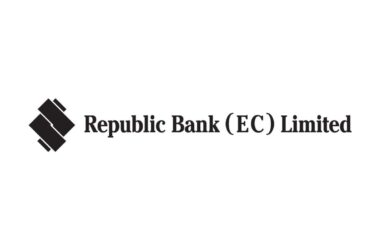
Dr Axel Kravatzky is the managing partner of TT-based Syntegra-360 Ltd, vice-chair of ISO/TC309 Governance of Organizations and president of EUROCHAMTT. He enables companies to flourish, helping them increase the sustainable value they generate through integrated governance, certified management systems, and transformational leadership.
The United Nations’ Agenda 2030, adopted in 2015, with its ambitious set of 17 Sustainable Development Goals (SDGs) and 169 targets, was agreed to by all governments. Across the Caribbean and other parts of the world, transformation is underway.
In 2023, we have reached the halfway mark and can look back at what we have achieved. The Economic Commission for Latin America and the Caribbean (ECLAC) reports that the situation in the Caribbean is not too dissimilar from that of the rest of the world: 23% of our goals are reported to be on track after 50% of our allocated time has passed. In some areas, we have even moved away from the target.
The disconnect between aspirations and commitment, from action and achievement, has become apparent.
The Current Challenges in Achieving Sustainability
The traditional “business as usual” model is ineffective in addressing our current sustainability crises. Despite widespread acknowledgement of the need for change, progress in achieving the SDGs is far too slow.
Some have put their hope in the new global consensus Environmental, Social, and Governance (ESG) frameworks – within the Caribbean, mainly the International Sustainability Standards Board (ISSB) standards published this year because they will likely be adopted within the Caribbean in the coming years.
However, these ESG frameworks, while valuable in promoting awareness and transparency, predominantly focus on how sustainability issues impact the company rather than how the company impacts sustainability issues.
Even those that incorporate double materiality – considering outcomes for people and the planet as well as the financial impact on the firm, as is the case with the European Sustainability Reporting Standards (ESRS) – focus primarily on reporting and not decision-making processes that prioritize well-being and real impact.
A telling indicator of this discrepancy is the rise in ESG-branded funds, which has not corresponded with equivalent progress in achieving the SDGs. This situation suggests a decoupling of investment growth from actual sustainable development, highlighting the shortcomings of current approaches.
The Need for a Transformative Pivot in Business Sustainability
To address these shortcomings, there is a pressing need for businesses to pivot towards a new vision of sustainability. This transformation involves shifting:
From profit-only focus to financial and non-financial value creation
From short term to long-term decision making
From sustainability as an add-on to a core feature of how all business gets done
From shareholder-only value to multistakeholder value
From SDG alignment to SDG action
From measurement and reporting to strategizing, managing, and decision-making for impact
From financial risk management to value creation and innovation
Introducing the SDG Impact Standards
To help businesses achieve this transformation, the United Nations Development Programme (UNDP) developed the SDG Impact Standards, a transformational decision-making tool. These standards represent more than guidelines; they enable a fundamental shift in the business approach to sustainability. They aim to integrate sustainable practices into businesses’ core operations, allowing them to effectively manage and improve the company’s contribution to sustainable development and the achievement of the SDG targets.
The SDG Impact Standards are unique in several respects:
Holistic Strategy Integration: Encouraging businesses to embed sustainability and the SDGs into their core purpose and strategy, emphasizing long-term value creation for both the business and society.
Emphasis on Impact Management: Advocating for an approach beyond reporting, focusing on assessing, managing, and optimizing the social and environmental impact of business decisions.
Governance and Transparency: Enhancing governance structures that ensure sustainable practices are enacted, not just promised. Transparency is vital in communicating actions and impacts to stakeholders.
Practical Decision-Making Tools: Providing tools and guidelines for making decisions aligned with the SDGs, including setting targets, measuring impact, and improving practices.
The New Normal and the Role of the Private Sector
The adoption of the SDG Impact Standards signifies the new normal for the private sector’s role in sustainable development. They enable businesses to actively make decisions, develop strategies, and drive investment to make measurable and auditable progress towards the specific SDG targets and the sustainability goals.
The private sector’s involvement is crucial for several reasons:
Innovation and Economic Activity: As engines of innovation and economic growth, businesses can drive significant positive change and avoid profiting from creating harm.
Resource Mobilization: Businesses can mobilize resources and expertise to develop sustainable solutions.
Stakeholder Engagement: By engaging with a broad range of stakeholders, businesses can ensure that their actions consider the voices of those affected by their operations.
The SDG Impact Seal: A New Benchmark for Sustainable Excellence and Credibility
To promote trust and credibility, UNDP is also developing the possibility for companies to attain the SDG Impact Seal through the SDG Impact Assurance Scheme.
The Assurance Scheme sets its minimum requirements at an accessible level. This approach enables organizations to strive towards best sustainability practices progressively. The scheme will serve as a beacon of international credibility as it will adhere to the rigorous standards of ISO 17065.
The SDG Impact Seal is a crucial element of this initiative and a distinct marker. It identifies and celebrates organizations genuinely committed to sustainable operations and impactful contributions to the SDGs. In this way, the Seal becomes more than a symbol; it becomes a testament to an organization’s dedication to making an authentically sustainable difference.













